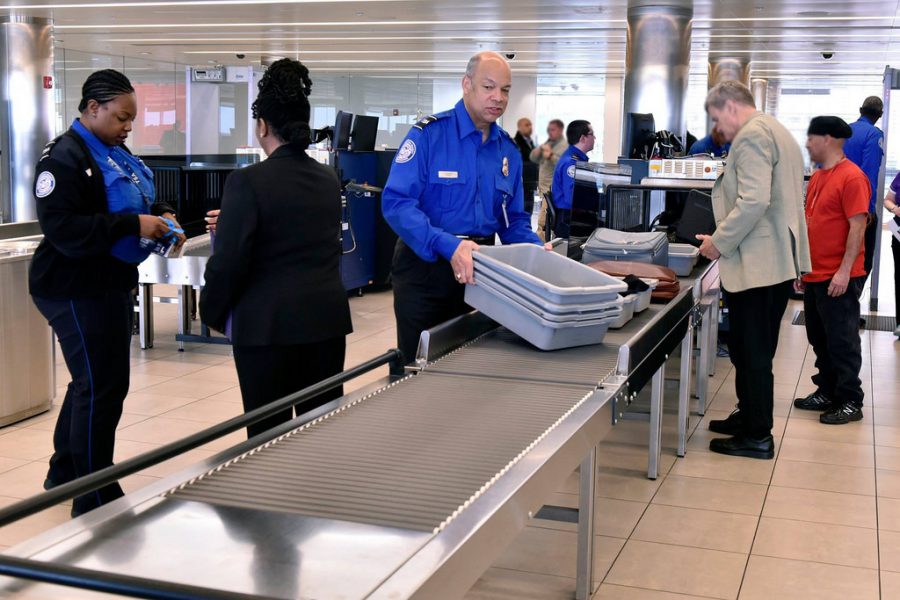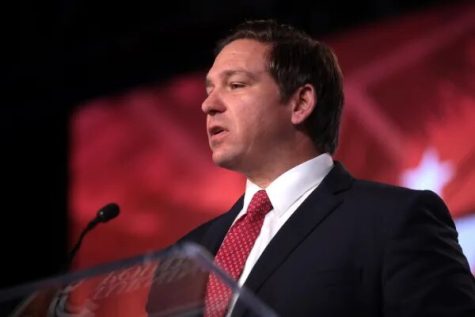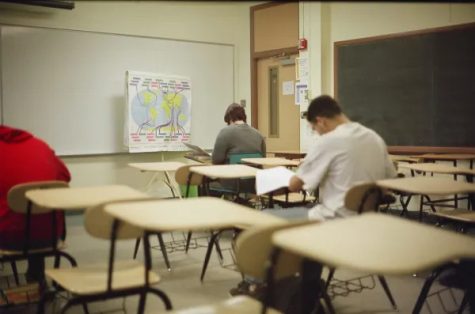Government shutdown troubles students, teachers
After Congress negotiates spending deal, federal employees anxiously await the President’s final decision
TSA agents were left no choice but to work without pay during the 34 day shutdown.
Lawmakers have come together to make a deal that might reduce the threat of another government shutdown. The bipartisan border deal was made on Tuesday. The deal includes $1.375 billion for 55 miles of new fences along the border instead of Trump’s original request of $5.7 billion for 237 miles of steel wall. If the deal gets signed by the President, it lasts through September 30, and would fund the Homeland Security, State, Agriculture and Commerce departments, along with other agencies large and small, composing about 25 percent of the federal budget controlled by Congress. Though he is not necessarily happy with the deal, Trump will have to sign or veto the deal by February 15.
Ending on January 25, the partial government shutdown began on December 21 after Congress failed to pass a budget package by to fund all but essential federal services.
The shutdown occurred as a result of President Donald Trump’s dispute with Congress over funding for a border wall. President Trump has been trying to fund a wall to border Mexico and the United States since the beginning of his presidency.
Trump’s demand for $5 billion to build the wall was rejected by the Democrats, so after criticism from conservative media pundits, Trump refused to sign off on any spending bills until the wall is funded. Democrats tried to compromise by offering $1.6 billion towards the wall. 75 percent of the budget spending for the government was approved in October 2018.
The partial shutdown affected many agencies such as Homeland Security, the Justice Department and the State Department, among other federal entities. Around 51,000 TSA airport screeners were absent from work in a way to slightly protest the shutdown. Since the absentee rate of employees was high, the lines for airport security were much longer than normal.
“The shutdown affected me when I came back from Atlanta and I had to wait an hour for TSA, due to employees not being present there. [They were] probably trying to find alternative work because they [were] not getting paid to work in TSA,” peer counseling teacher Erica Hansinger said.
Many students felt empathetic toward the federal employees that affected by the shutdown.
“I feel bad for the people who work[ed] for the government, who [struggled] pay for their rent or for food. [It was] so sad,” sophomore Alekah Laing said.
This recent government shutdown of 34 days has gone on record as the longest since that of 1995 to 1996 under the presidency of Bill Clinton, which lasted 21 days.
As a Navy veteran, senior Sarah Bonner’s grandfather was affected by the shutdown. She said while it didn’t affect him as directly (not having to work without pay), her grandfather still didn’t get one of his retirement checks.
Sophomore Emily Rodriguez’s family was directly impacted by the shutdown. Rodriguez’s father works for a company called Radio y Televisión Martí. It is an American radio and television international broadcaster based in Miami but is financed by the Federal government through the U.S. Agency for Global Media, which transmits political propaganda in Spanish to Cuba.
“It really stressed [my father] out because [both of my parents] were worried about paying for gas and food. And at the same time, he was worried about everything that [was going to] go on at work,” Rodriguez said.
During the shutdown, students weighed in on the issues, such as sophomore Mitchell Lieberman, who said the government should take all the time they need to organize a good plan for the country and agreed essential workers should go to work and do what’s required.
Until the negotiated spending deal is signed on Friday, the anxiety among the estimated 420,000 federal employees will continue to be high.








